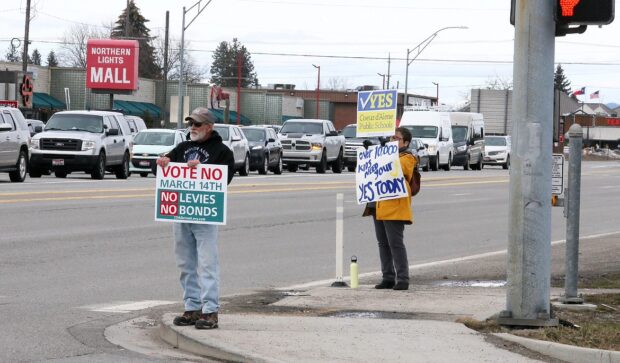Coeur d’Alene Superintendent Shon Hocker was in a state of shock on Wednesday morning.
Reeling from the news that two of the district’s school funding measures failed by razor-thin margins, Hocker was still processing what the losses mean for his schools, staff, and students.
“I almost just don’t have any words,” he said. “We certainly did not expect to win by a landslide, but I don’t think anybody expected the results that ended up happening.”
The first blow: a permanent, $25 million-a-year supplemental levy — one that’s been regularly passed since the ‘80s and makes up 25% of the school’s budget — failed with 48.97% support, just hundreds of votes away from the needed simple majority.
As Hocker put it, “This is not a supplemental levy. It is a 100% fundamental levy.”
—A permanent supplemental levy:
Coeur d’Alene’s ask for a permanent supplemental levy capitalizes on a state law that allows for a permanent levy with simple majority support under certain conditions. Districts can seek permanent taxing authority if a levy has been on the books for at least seven straight years, and if it accounts for at least a fifth of the district’s maintenance and operations fund.
—What the permanent levy would’ve paid for: see a full list here.
The biggest chunk ($7.2 million) of that annual $25 million would’ve gone toward salaries and wages for teachers and staff.
“Over 300 employees are tied to that levy funding, and you can imagine every two years when you have that many employees that don’t know whether they have a job the next year, it is just not good,” Hocker said.
That’s part of the reason the district opted for a permanent levy rather than the typical two-year levy in Tuesday’s election. Long-term planning is difficult when boards and districts can’t count on needed funding for more than two years ahead of time, Hocker said.
Plus, he argues that a permanent levy would save taxpayers money in the long run because districts wouldn’t have to repeatedly spend resources on election information materials.
But Hocker acknowledges it was the permanent aspect of the levy that seemed to fuel a local anti-levy campaign — one that he and Trustee Casey Morrisroe recently called out as “bogus” and “un-American.”
“The non-supporters primarily hung their hat on the perpetuity piece,” Hocker said.

DEVIN WEEKS/Coeur d’Alene Press
The Coeur d’Alene School District is also grappling with its second election night loss: a five-year, $25 million plant facilities levy that failed with 54.48% support — tauntingly close to the needed 55% support.
What the plant facilities levy would’ve paid for:
—The bulk of the levy would’ve gone toward addressing a list of school maintenance needs, including HVAC, roofs, electrical, plumbing systems, interior finishes/flooring, exterior site work, equipment, and furnishings.
— And $2.5 million would’ve been allocated for safety and security needs, such as fencing, security cameras, and door access controls.
This levy was a scaled-back version of a 10-year, $80 million levy that failed in August with 50% support, again short of the needed 55%.
But even that “drastic cutback,” as Hocker called it, was not enough to gain voter approval.
“We’re going to now have to go back to the community and regroup and figure out what we’re going to do,” Hocker said. “I don’t think it’s an option in our community to just let (the buildings) crumble to the ground.”
Hocker said the board will hold a special meeting on Monday to determine how to move forward, which could include putting a two-year supplemental levy on the May ballot.
Further reading: For all the statewide election results, go here. Bond and levies are complicated — for an explainer and more information on how they work, go here.
